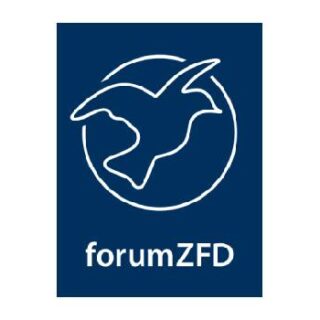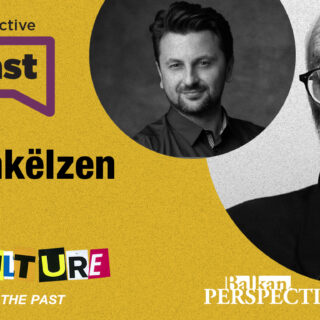Often times when you want to talk about something, and for some reason you are uncomfortable, it seems that the easiest thing to do is to distance yourself from the problem, to present it as someone else’s and to talk about it from a “safe” distance. In ordinary conversation with close people, it is most often represented by using experiences of acquaintances or retelling things, insinuating and “dropping hints”.
In situations of a relatively intellectual environment, in the past books provided that opportunity, but today, as the most suitable opportunity to empathize with the things that do not interest us and to seek answers to the questions that we cannot utter, is to face them through the art that is a combination of the arts – the “7th art”, i.e. film.
Due to the specifics in which we live, conditioned above all by our environment, which has its own typical prejudices, viewpoints, judgments, groundless resistance caused above all by the fear of the unknown, it seems that for the easiest way to face, analyse and accept things, we can use the realizations from our cinematography as well as the cinematographies close to us in terms of mentality.
This time, the focus of our observation will be films that have as their subject the issues of homosexuality, transgenderism and transsexuality.
That is why I suggest that we look for some examples among the films made in the country in the last ten years.
But before we do that, as an introduction, let’s recall just a few authors and titles that long ago (5 decades ago to be more precise) brought a revolution with respect to these topics worldwide… From Visconti through Bob Fosse or Héctor Babenko to Abdellatif Kechiche, Sebastián Lelio, Todd Haynes or Ang Lee, but mostly Pedro Almodóvar, from William Hart, through Colin Firth, Heath Ledger and Jake Gyllenhaal, Guy Pearce, Antonio Banderas, Rupert Everett,… to Cate Blanchett, Rooney Mara or Daniela Vega, Léa Seydoux,… many creatives through their creations advocated overcoming prejudices and winning over stereotypes.
But all that in the world turned out to be a trend of liberation, in the regional and of course the Macedonian cinematography took a slower turn. From the regional performances in Macedonian cinemas, less often on the repertoires (“Parade” by Srđan Dragojević, “The Constitution of the Republic of Croatia” by Rajko Grlić), and more with festival screenings (“Wedding” by Blerta Zekiri), we nevertheless gained an insight into the artistic endeavours to overcome some topics that still, especially in smaller communities, have a taboo connotation.
In Macedonian cinematography and TV production, in the earlier stages, the touch of “sexual diversity” usually had a mild, episodic context, subtly pushed aside (“Gypsy Magic” by Stole Popov from 1997). However, from the comedic performances of cabaret-entertainment programs with a theatrical hint (the show “Women’s Orchestra”), the more serious “dealing” has moved to the small and big screen.
A basic feature of the touch of the wide range of intimate events with (first and foremost) a homosexual hint in the Macedonian drama medium has been reduced to 2 basic features: overemphasized caricature or too subtle suppression. What DYNASTY is for the world television message in the 80s of the last century, (Steven’s character), is present here in both seasons of the series FAMILIATA MARKOVSKI, but also in the comic series PRESPAV and the character played by Vasil Zafirchev, whom you would still single out with the bravura in THE PIANO ROOM. Namely, overcoming prejudices through a comic approach is attempted by the popular TV series “Prespav”, which was broadcast for several seasons on various national television stations. The character of Mario interpreted by Vasil Zafirchev depicts the character precisely through an exaggerated caricature of physical expression and exaggerated gestures. But it was Zafirchev’s excellent acting experience that brought Macedonian cinematography the extraordinary role of Ira in Igor Ivanov-Izi’s film, “The Piano Room” from 2013. The man, i.e. the husband, in one of the scenes in the hotel piano room, dressed as a woman and waiting for his partner, flirts with the mirror, but also learns that he is infected with the HIV virus.
The story in Darian Pejovski’s debut, “Three days in September” from 2015, is completely different and subtly guided “on the thin line”, in which the two main characters are literally masterfully played by Irena Ristic and Kamka Tocinovski. Their anti-heroic, anti “Thelma and Louise” tandem can easily be counted among the best female roles in our cinema. And while Tocinovski’s rock-bottom character seems to bring the actress a kind of relief in building the character, Ristic’s ability to deal with what appears to be little room for nuance in her first major film role leads to a cathartic believability that mesmerises the viewer. The chemistry between the two puppets of fate is the strongest weapon that will not leave anyone indifferent. However, the main story line of the film, leaves little room for the development of the relationship between the two female characters keeping the audience guessing if, and to what extent could their relationship evolve.
And perhaps with the series “The Markovski Family” (2017), we can only hope, that the humane treatment of the problems of sexually diverse people on the small screen began, in the sense that “ordinary things” happen to them too and that they are neither shown either with excessive caricature and pathos, nor they are unhappy and necessarily lead a life with a tragic end. However, it remains to be seen what the future projects of Macedonian cinematography will have in store.
Toni Cifrovski is a long-time journalist and presenter in the Macedonian Radio-Television, currently the editor of the Cultural Program of the Macedonian Radio-Radio Skopje. He cooperates as a culture correspondent for Radio Deutsche Welle (1996-2006), he edited and hosted the show “Let it be a film” on the programs of the Macedonian Television, and for several years he also published film reviews in the daily newspaper “Dnevnik”. He is the author of three books with film reviews “Kineenje 1-3”. He is a member of the world federation of film critics FIPRESCI and the Editorial Board of the magazine for history, theory and culture of the film KINOPIS at the Cinematheque of Macedonia. In 2015, he received the “Script Present” award for multi-year critical engagement and contribution to film art, awarded by the “Macedonia Present” foundation. In July 2006, he was nominated for the prestigious “PRI EUROPE” award for the documentary-radio-show “Simon Trpceski – from the small room to the big world stages”. So far, he has realized over 6,000 bibliographic units in the field of film and other arts.




